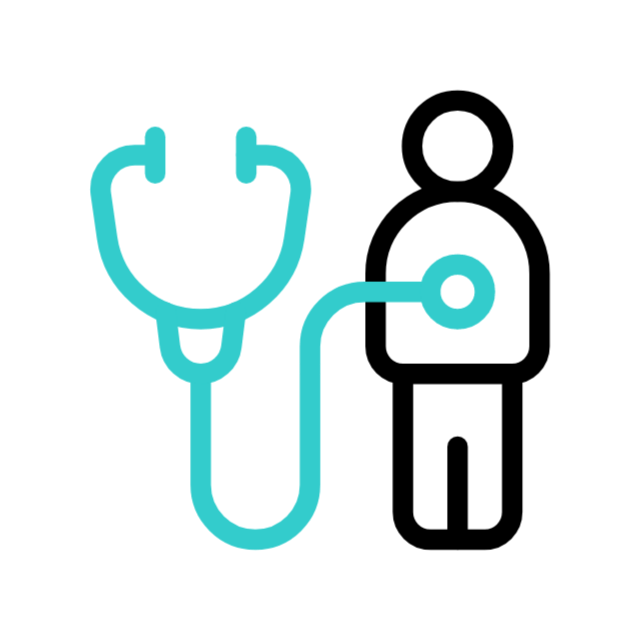ICU Department

Geriatric
Geriatric orthopaedics is a specialised science concerned with the special musculoskeletal health of older people. With age, bones weaken (osteoporosis), joints tend to wear out (osteoarthritis), and the amount of muscle tissue decreases (sarcopenia). Such alterations increase the vulnerability of older adults to falls and fractures, as well as persistent pain. Geriatric orthopaedics does its best to be very comprehensive and take care of not only the injury or condition but also the health of the patient, their mental capabilities, and their support system so that an adequate result is achieved.
Indications
- Fragility Fractures: Fractures, most often including hip, spine and wrist fractures, occurring upon a low-energy fall, constitute an osteoporosis hallmark and a key criterion to orthopaedic and metabolic bone health assessment.
- Advanced Osteoarthritis: Osteoarthritis causes severe, debilitating pain and functional loss in joints, which has a principal effect on an older adult's independence and quality of life.
- Age-Related Deformities: Painful progressive spinal or limb deformities, including kyphosis, make daily activities difficult and cause balance problems.
- Chronic Pain and Mobility Problems: The Occurrence of chronic musculoskeletal pain that limits mobility and predisposes to falls, even in the absence of a given injury, necessitates a complete orthopaedic examination.
Effects
- Greater Independence: Treating the fractures alleviates the pain and bestows mobility to older people; they can be independent and live longer in their own houses.
- Minimised Risk of Falls: Balance correction by overcoming the underlying musculoskeletal problems (including weakness and instability of joints) and restoring deformities can prevent falls and significantly reduce their risk in the future.
- Improved Quality of Life: Macro: Geriatric orthopaedic care can relieve chronic pain and restore mobility, thus enabling ageing adults to stay active, involved in social life, and free of the constraints of musculoskeletal conditions.
- Better Overall Health: Orthopaedic conditions may lead to a series of health implications that include deconditioning, depression and other medical complications that come with mobility. Early diagnosis and treatment will solve these problems.
Sepsis
Sepsis is a fatal condition that develops as a result of an infection and the subsequent reaction by the body that becomes overpowering and harmful. In contrast to fighting the disease, the immune system overreacts and functions on a large-scale, body-wide inflammatory reaction. This may cause tissue and organ injuries, as well as, most seriously, septic shock, where blood pressure becomes extremely low and multiple organs fail. Treatment and quick medical response should be avoided because the condition known as sepsis is highly lethal and can worsen very fast.
Indications
- Signs of Infection: It is a prerequisite that one has an existing or suspected infection, including pneumonia, urinary tract infection, or a wound on the skin.
- Systemic Inflammatory Response Syndrome (SIRS): Clinical manifestations of a strong inflammatory response representing an increase or decrease in body temperature (>100.4 °C or <96.8 °C), fast heartbeat rate (>90 beats/minute), fast breathing rate (>20 breaths/minute), and an abnormal white blood cell count.
- Organ Dysfunction: A sign of developing or aggravated organ performance, including confusion or changes in mental level, impaired urinal output, respiratory problems or mottled skin.
- Increased biomarkers: an Increase in the inflammation markers such as Reactive Protein (CRP) and procalcitonin levels as measured in blood tests, which reflect a severe systemic infection.
Effects
- Multiple Organ Failure: Sepsis may cause a progression of organ failure, such as kidney failure, respiratory failure (acute respiratory distress syndrome) and liver failure, and may necessitate life support.
- Septic Shock: This is an extreme variety of sepsis, which is a severe decline of blood pressure with no potential for recovery with fluid resuscitation. It leads to ineffective blood circulation to crucial organs, and death is also a significant cause of it.
- The Long-Term Physical and Mental Health Concerns: Sepsis Long-term survivors can have lasting problems (e.g., muscle weakness, difficulty with chronic pain, limb amputation (poor blood flow), PTSD), and post-traumatic stress disorder (PTSD).
- Higher Mortality: Sepsis is among the leading causes of death in hospitals across the world despite the improvements in medical care. A delay of several hours in the treatment can increase the likelihood of death.
Traumatic Brain Injury
Traumatic Brain Injury (TBI) is a complicated skull trauma to the brain caused by an abrupt trauma to the brain, e.g. a solid blow to the brain or a piercing item. A TBI can be mild (a short period of impairment in mental state /awareness, like a concussion) or severe (a long period of unconsciousness or amnesia). The TBIs may present instant and prolonged physical, cognitive, and psychological ramifications. TBI treatment, including acute medical stabilisation, observation, and long-term rehabilitation, is essential to reduce consequences and support patients in becoming functional.
Indications
- Alteration in Consciousness: One of the most important signs and symptoms is a loss of consciousness or even a brief lapse to a few seconds, or being dazed, muddled or unfocused immediately after a head injury.
- Post-traumatic Amnesia: This is a significant indication by loss of memory of incidents that take place before or after the injury. The duration of the amnesia is usually associated with the severity of the TBI.
- Neurological Symptoms: If there are new neurological symptoms, e.g. imbalance or coordination difficulties, slurred or blurred speech, it is another strong sign of brain damage.
- Physical Trauma: Evidence of injuries such as a fracture to the head, bruising around the eyes (raccoon eyes), or bruising behind the ears (Battle's sign) is an obvious indication that there is a lot of trauma.
Effects
- Mental Disabilities: The effects of TBI may cause a variety of cognitive disabilities, such as memory, attention, concentration, reasoning, and problem-solving.
- Physical Disabilities: Muscle weakness, poor coordination, speech and swallowing difficulties can all be motor deficits resulting from TBI, depending on the location within the brain that was impacted.
- Behavioural and Psychological: The survivor might develop changes in personality, mood swings, irritability, depression, anxiety and a tendency to develop post-traumatic stress disorder.
- Long-term Complications: Severe TBI may cause lifelong disability that takes a lot of rehabilitation, as well as care. It is also known to expose an individual to the risk of developing neurodegenerative diseases later in life, like Parkinson's disease and dementia.


 Insurance
Insurance Health Packages
Health Packages

